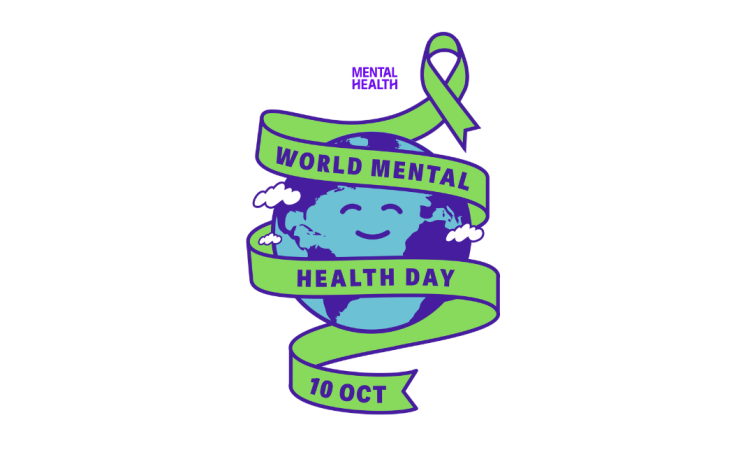Each year, World Mental Health Day (10 October) asks us to reflect on how people are supported when life feels overwhelming. The theme for 2025 focuses on mental health support in crises and emergencies. While disasters are often thought of on a global scale, many of the most destabilising emergencies are deeply personal. Divorce is one of them, with a YouGov survey for Resolution finding that 41% of people who divorced experienced mental health challenges.
We see separation not only as a legal issue but as a human crisis where kindness and compassion matter. This is why we advocate for mediation and other forms of non-court dispute resolution (NCDR) that provide a calmer, less stressful path forward, helping to protect wellbeing during one of life’s toughest transitions.
Divorce as a mental health crisis
Separation consistently ranks among life’s most stressful experiences. Research has shown that rates of depression and anxiety often rise around the time of divorce, with one large study in Denmark finding that people’s quality of life was noticeably lower in the period immediately after separation. High levels of conflict were linked to worse outcomes, particularly for women, suggesting that how a divorce is handled can make a real difference to wellbeing.
Financial pressure, uncertainty about the future and the impact on children all add to the strain, which can linger well beyond the paperwork. That’s why exploring routes such as mediation and other types of NCDR can help ease the process, offering a calmer, more constructive way forward that better protects mental health at a difficult time.
The ripple effect on children and families
Conflict between parents does not exist in a vacuum. Children often absorb the tension, and studies link hostile divorces to higher anxiety, reduced school performance and fractured family relationships. Grandparents and extended family can also find themselves caught in the crossfire, struggling to provide support in an atmosphere clouded by hostility. In contrast, mediation offers a way to shield children from direct exposure to arguments and gives parents the tools to build healthier co-parenting relationships. A calmer process today can set the stage for stronger family ties tomorrow.
The kinder alternative: NCDR and mediation
Non-court dispute resolution, including mediation, provides families with a constructive path forward. It encourages open conversation and a focus on solutions rather than battles. In the short term, mediation reduces hostility, helps couples reach agreement more quickly and lessens the emotional toll of proceedings. In the long term, families often experience improved communication, more sustainable arrangement and healthier co-parenting relationships. Choosing mediation can reduce the likelihood of repeated disputes and help everyone involved begin their next chapter with less emotional baggage.
I am not only a qualified family law solicitor but also a trained mediator. This dual expertise means I can provide not only sound legal advice, but also a sensitive approach that prioritises your wellbeing, giving your family the tools you need to move forward.
Practical support and government initiatives
For families exploring mediation, support is available. The family mediation voucher scheme, recently extended until 2026, offers up to £500 per couple to cover mediation costs. Government figures show that mediated cases are not only resolved more quickly than those that go through court, but they are also far less expensive. For many families, this support makes mediation a realistic and accessible option. At Belderbos Solicitors, we guide clients through these practical steps so the process feels less overwhelming. With our expertise in family law and mediation, we help you to navigate these practical steps with confidence and reassurance.
Who to turn to for support
Divorce can leave people feeling isolated, but help is always available. If you notice your mental health declining, reaching out early can make a real difference. Talking to your GP is a good first step, as they can connect you with local support services. Organisations such as Mind and Samaritans provide confidential support and guidance. For children and young people, YoungMinds offers advice and resources tailored to their needs.
Aside from these resources, family and friends can also be an important lifeline. Sharing how you feel with someone you trust can reduce the weight of carrying everything alone. We encourage this kind of support alongside legal guidance, so that you can be assured you are receiving the right advice whilst you navigate your emotions.
Moving forward without the added stress of court
World Mental Health Day reminds us that in times of crisis, support can make all the difference. Families navigating separation deserve processes that protect their dignity and reduce the harm caused by conflict. Mental wellbeing should remain a priority throughout the process of divorce, and choosing mediation allows families to resolve disputes with greater dignity and less damage to emotional health.
At Belderbos Solicitors, we believe legal and emotional support should go hand in hand, and our mediation expertise helps ensure our clients feel heard and supported throughout their journey. If you are facing separation and want to explore a path that protects your wellbeing, mediation may be the first step towards recovery.

